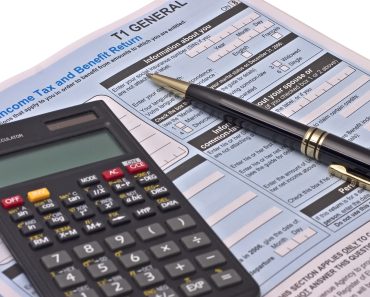The First-Time Home Buyers’ Tax Credit is a valuable opportunity for Canadians looking to purchase their first home. This credit provides financial assistance to eligible individuals, helping to lower their overall tax bill. By understanding the qualification criteria and benefits of this credit, potential home buyers can make the most out of this program. Government assistance programs and additional considerations for first-time home buyers are also worth exploring. In this article, we will provide an overview of the First-Time Home Buyers’ Tax Credit and guide readers through the various aspects of this program.
Overview of the First-Time Home Buyers’ Tax Credit
The First-Time Home Buyers’ Tax Credit is a valuable program designed to assist eligible individuals in purchasing their first home in Canada. This tax credit provides financial relief by reducing the amount of federal tax owed, helping first-time buyers manage the costs associated with homeownership.
Under this program, eligible individuals can claim a non-refundable tax credit of a certain percentage of their qualifying home purchase cost, up to a specified maximum amount. The credit is calculated based on the lowest personal income tax rate for the year of the purchase.
To qualify for the First-Time Home Buyers’ Tax Credit, applicants must meet certain criteria regarding their residency status, the property being purchased, and their intention to occupy the home within one year. It’s important to note that the tax credit can only be claimed once per individual and cannot be transferred or shared.
Claiming the First-Time Home Buyers’ Tax Credit requires completing and submitting the appropriate documentation, including Form T1036, along with the annual tax return. Remember to keep all relevant receipts and supporting documents to substantiate your claim.
It’s crucial for first-time home buyers to understand the benefits and limitations of the tax credit, as well as explore other government assistance programs available to them. By leveraging these resources and understanding the application process, potential homeowners can maximize the financial benefits and achieve their dream of owning a home.
How to Qualify for the First-Time Home Buyers’ Tax Credit
Qualifying for the First-Time Home Buyers’ Tax Credit requires meeting certain criteria set by the Canadian government. Here’s what you need to know:
- Be a Canadian resident: To be eligible for the tax credit, you must be a resident of Canada in the year you purchase the home.
- First-time home buyer status: As the name suggests, this credit is specifically designed for individuals who are purchasing a home for the first time. You must not have owned a home anywhere in the world before.
- Home purchase qualification: The property you’re buying must qualify under the guidelines set by the government. This includes ensuring it is your principal residence, located within Canada, and meets the specific requirements outlined by the Canada Revenue Agency.
- Closing date requirement: The closing date of the purchase must occur in the calendar year before claiming the tax credit. Make sure to keep all relevant documentation, such as the purchase agreement and closing statement, for reporting purposes.
Meeting these qualifications is essential to take advantage of the First-Time Home Buyers’ Tax Credit. Keep in mind that it’s always advisable to consult with a tax professional or refer directly to the Canada Revenue Agency for the most accurate and up-to-date information related to your specific circumstances.
Benefits and Limitations of the First-Time Home Buyers’ Tax Credit
Understanding the benefits and limitations of the First-Time Home Buyers’ Tax Credit is essential for Canadian individuals embarking on their homeownership journey. Here are key points to consider:
- The tax credit provides eligible first-time home buyers with financial relief by reducing their tax liability.
- It allows qualifying individuals to claim a tax credit based on the purchase price of their home, up to a specified amount.
- By providing this credit, the government aims to support Canadians in achieving homeownership and stimulating the housing market.
- One significant advantage of the tax credit is the potential for increased affordability, as it effectively reduces the amount of taxes owed.
- However, it is important to note that the tax credit also comes with limitations. It is non-refundable, meaning it can only reduce the amount of taxes owed to zero. Any unused portion of the credit cannot be carried forward or carried back.
- Additionally, the credit is exclusive to first-time home buyers and has specific eligibility requirements that must be met.
Overall, while the First-Time Home Buyers’ Tax Credit offers valuable benefits in terms of reducing tax liability and increasing affordability, it is necessary to understand its limitations and eligibility criteria to fully leverage this opportunity.
Government Assistance Programs for First-Time Home Buyers
As a first-time home buyer in Canada, there are various government assistance programs available to support you in your journey towards homeownership. These programs aim to make the purchasing process more affordable and accessible for individuals entering the housing market for the first time. Here are some notable government assistance programs:
- Home Buyers’ Plan (HBP): This program allows you to withdraw up to $35,000 from your Registered Retirement Savings Plan (RRSP) tax-free to use as a down payment towards your first home.
- Certain Home Buyers’ Amount: This non-refundable tax credit provides relief to first-time home buyers, helping to lower the overall amount of federal tax owed.
- Land Transfer Tax Rebates: In certain provinces, eligible first-time home buyers can receive rebates on the provincial and municipal land transfer taxes, reducing the upfront costs associated with buying a home.
It’s important to research and understand the specific eligibility requirements and application processes for each program. Additionally, consulting with a qualified financial advisor or mortgage specialist can provide valuable guidance in navigating these government assistance options tailored to first-time buyers.
Eligibility Criteria for the First-Time Home Buyers’ Tax Credit
To qualify for the First-Time Home Buyers’ Tax Credit in Canada, there are certain eligibility criteria that individuals must meet. The following are key requirements:
- Being a first-time home buyer: This credit is specifically designed for individuals who are purchasing a home for the first time.
- Principal residence: The home being purchased must be intended to be the taxpayer’s principal residence.
- Purchase date: The agreement to purchase the home must be entered into after January 27, 2009.
- Ownership duration: The taxpayer, or their spouse or common-law partner, must not have lived in another home owned by them or their partner in the year of the purchase or any of the four preceding years.
- Qualifying home: The purchased home must meet the criteria of being considered a qualifying home, which typically refers to properties located within Canada.
It’s important to note that meeting these criteria is essential for claiming the First-Time Home Buyers’ Tax Credit. Understanding the requirements beforehand can help potential home buyers determine their eligibility and plan accordingly.
Applying for the First-Time Home Buyers’ Tax Credit
Once you have determined your eligibility for the First-Time Home Buyers’ Tax Credit, the next step is to apply for it. Follow these steps to ensure a smooth application process:
- Gather all the necessary documents, such as proof of purchase, mortgage details, and supporting documentation for your eligibility.
- Complete the T183 form, which is the federal income tax and benefit return form.
- Include the necessary information about your home purchase and ensure accuracy in reporting.
- Submit your completed form along with any supporting documents to the Canada Revenue Agency (CRA).
- Wait for confirmation from the CRA regarding the status of your application.
It is recommended to keep copies of all documents submitted for future reference. If the application is approved, the First-Time Home Buyers’ Tax Credit will be applied towards your tax liability for the applicable tax year. If there are any discrepancies or additional information required, the CRA may reach out to you for further clarification.
Applying for the First-Time Home Buyers’ Tax Credit is a straightforward process, but attention to detail and accuracy is essential. By following these steps and providing all necessary documentation, you can ensure a seamless application that maximizes the benefits you are eligible for.
Common FAQs about the First-Time Home Buyers’ Tax Credit
Curious about how the First-Time Home Buyers’ Tax Credit works? Here are some common questions and answers:
- What is the First-Time Home Buyers’ Tax Credit?
- Who is eligible for the credit?
- What is the maximum amount of the credit?
- How is the credit calculated?
- Can I claim the credit if I am purchasing a second property?
- Is there an income limit to qualify for the credit?
- Can I apply for the credit if I am buying a pre-construction home?
- Do I need to repay the credit?
- Can I combine the First-Time Home Buyers’ Tax Credit with other government assistance programs?
- What documents do I need to include with my application?
- How do I apply for the First-Time Home Buyers’ Tax Credit?
Understanding the answers to these frequently asked questions will help you navigate the process of claiming the First-Time Home Buyers’ Tax Credit and make the most of this valuable opportunity. Be sure to consult the official government resources for complete and up-to-date information.
Maximizing the Benefits of the First-Time Home Buyers’ Tax Credit
When it comes to maximizing the benefits of the First-Time Home Buyers’ Tax Credit, there are a few strategies and considerations to keep in mind:
- Contribute the maximum allowable amount: Take full advantage of the tax credit by contributing the maximum allowable amount towards your first home purchase. Ensure that you meet the eligibility criteria and consult with a financial advisor for personalized guidance.
- Explore additional government programs: In addition to the First-Time Home Buyers’ Tax Credit, there may be other government assistance programs available to support your home buying journey. Research and consider programs such as down payment assistance initiatives or grants.
- Optimize your finances: Planning your finances wisely is crucial. Consider saving for a larger down payment to minimize mortgage costs and explore options like pre-approval for a mortgage to streamline the buying process.
- Seek professional advice: Working with a real estate agent, tax professional, or financial advisor who specializes in first-time home buyers can provide valuable insights and help you navigate the complexities of the tax credit and other related processes.
- Plan for future tax benefits: As a first-time home buyer, it’s essential to understand the long-term tax benefits that homeownership can bring. Familiarize yourself with other tax deductions and credits that may apply in subsequent years.
By implementing these strategies, you can make the most of the First-Time Home Buyers’ Tax Credit, minimize expenses, and set yourself up for a successful home buying experience.
Other Considerations for First-Time Home Buyers
- Mortgage Options: Research different mortgage products offered by banks and lenders to find the best fit for your financial situation.
- Interest Rates: Keep an eye on interest rates as they can affect your mortgage payments. Consider consulting with a mortgage specialist for expert advice.
- Home Insurance: Protect your investment by obtaining suitable home insurance coverage. Compare quotes from different insurance providers to find the most competitive rates.
- Home Maintenance Costs: Budget for ongoing maintenance expenses, such as repairs, landscaping, and utilities, to ensure you can comfortably manage homeownership.
- Future Resale Value: Consider factors that can impact the potential resale value of the property, such as location, amenities, and neighborhood developments.
- Property Taxes: Understand how property taxes are calculated in your area and include this expense in your overall budget.
- Home Inspection: Prioritize a professional home inspection to identify any potential structural or maintenance issues before finalizing the purchase.
By carefully considering these factors, first-time home buyers can make informed decisions and set themselves up for a successful homeownership journey.







